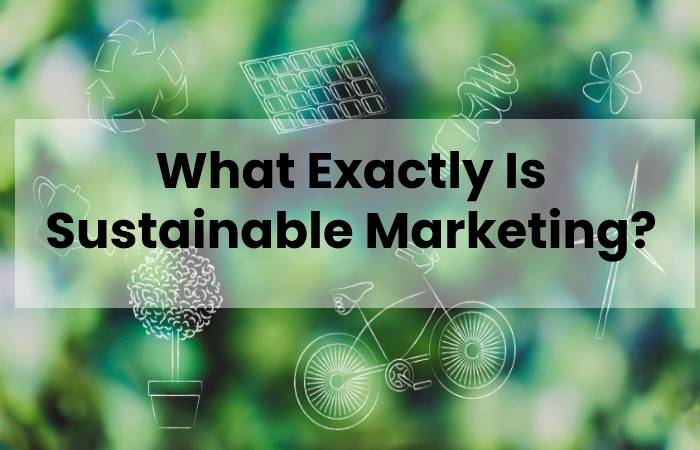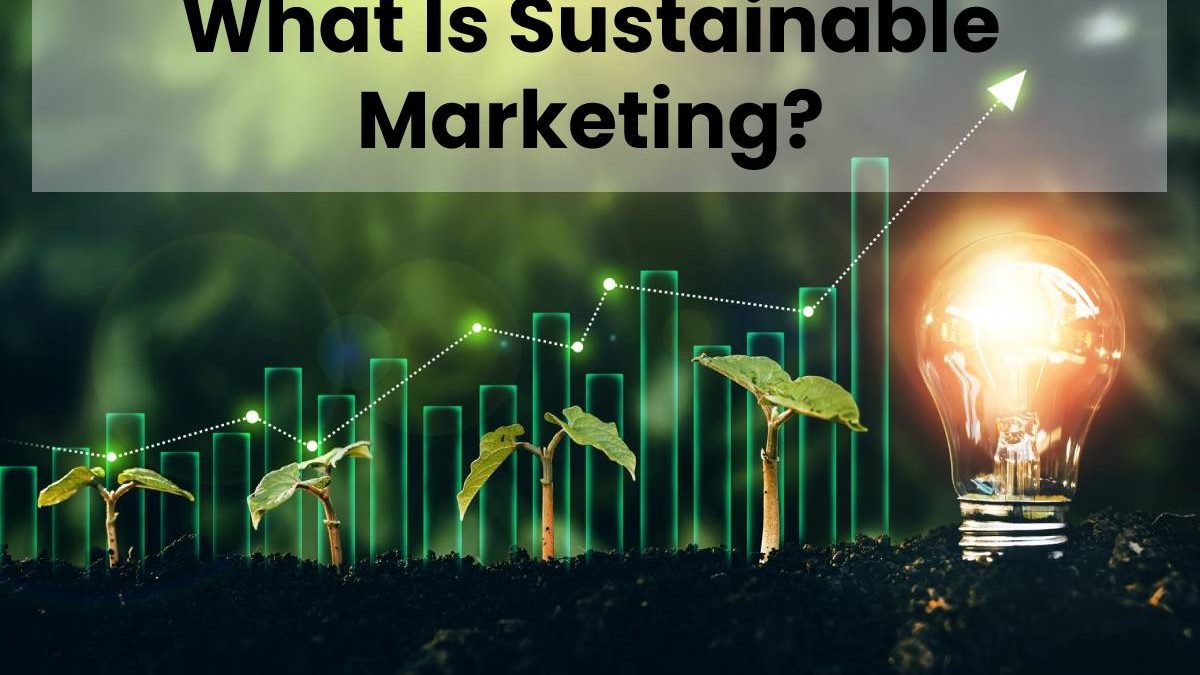Sustainable Marketing
Marketers’ rewards for achieving particular goals reinforce traditional marketing’s focus on profit. However, as knowledge of corporate sustainability grows, marketers are starting to rethink the conventional marketing method.
Because of how closely tied the company is, marketing is important. From conceptualization to manufacturing to sales, marketing remains involved in every phase of a firm. Marketers are all company’s strongest evangelists and spokespersons. My marketing career has been intriguing. I’m an expert in digital marketing, and I get a lot of satisfaction from assisting companies in expanding their internet brands.
Throughout my career, I have seen a variety of marketing shifts or modifications. The present change to sustainable marketing is what I’ve found to be most significant. As marketers, we significantly impact whether consumers adopt a culture of waste or make more environmentally friendly purchases. A more sustainable marketing strategy is required, given the frequently frightening effects of enterprises on society and the environment.
There has never been a greater pressing need to increase corporate impact. It is no longer an option for many marketers, including myself, to not engage in sustainable marketing. The planet needs a new strategy. But before employing sustainable marketing, one must comprehend what it entails and how it fits into the larger sustainability context.
What Exactly Is Sustainable Marketing?
I set out on a journey to understand sustainable marketing. I found several definitions. Others said sustainable marketing was about “not putting profit above the world,” while some defined it as “selling ecologically friendly or green products.”
However, most sustainable marketing definitions are only a small portion of a much bigger picture. We must go to the notion of sustainability itself to complete it.
Understanding Sustainable Development Or Sustainability
According to the World Council on Economic Development (WCED), one of the most reliable definitions of sustainability is “development that serves the requirements of present generations without sacrificing the needs of next generations. It is nevertheless common to depict economic, environmental, and social growth simultaneously.
Do Marketers Fit Anywhere?
However, for many marketers, including myself, the definitions of sustainability are sometimes so vague or generic that it feels as if we remain absolved of the duty. Meeting the requirements of future generations, after all, sounds like the responsibility of the government or a major enterprise.
The term “sustainable” has several meanings in the marketing industry further complicates matters. According to NBS Director Tima Bansal, “sustainable competitive advantage” and “sustainable growth” are frequently employed in various business ideas. It just means “strong” or “lasting” there. It is simple to understand why some marketers would misinterpret sustainable marketing.
Marketers Can Help Us Own Sustainability
A firm should meet the demands of its current customers without jeopardizing the ability of future generations to meet their own needs, according to Philip Kotler, one of our marketing experts who applies the WCED definition of sustainability.
Let’s be much more inclusive. Intimating Tima Bansal once again, sustainability should never remain seen as the responsibility of a solitary firm or, in this example, a solitary marketer. As marketers, we must think about how our collective actions affect the ecosystem as a whole.
What Are Some Ways Marketers May Use Sustainable Marketing?
Although knowledge is beneficial, practice is superior. To an outsider, assigning a marketer the task of engaging in sustainable marketing may seem straightforward. Sustainable marketing tactics sometimes take a back seat when managers and CEOs expect to hear how much money they made in the previous quarter at an executive meeting.
And for that reason, implementing sustainable marketing should be done gradually. Indeed, a marketer rarely has the power to alter an organization’s course in a single stroke. Still, we can take steps to help guide our companies toward sustainable marketing. Some of them consist of:
- Product Development: Marketers can collaborate with product developers and other important decision-makers to achieve sustainability and profitability.
- Marketing strategy is crucial when a firm is prepared to embrace sustainability. Fast fashion, unsustainable packaging, and planned obsolescence are consequences of marketing methods that focus entirely on capitalism and profit.
- Branding/Advertising: According to marketing expert Richard Varey, marketing communication is “a cultural business that has a cultural influence.”
- Partnerships: Companies realize that sustainability is not just a problem for one particular business. Businesses need to promote sustainable alliances to have a big influence.
- Marketing professionals serve as sustainability instructors. Education on sustainability is possible at every manager/CEO meeting and throughout every discussion of the marketing communications plan.
Conclusion
Give an example of sustainable marketing. An illustration would be people purchasing food in recycled plastic clamshells instead of in its unpackaged state. It’s important to consider the product life cycle when analyzing its effects on the environment and society.

